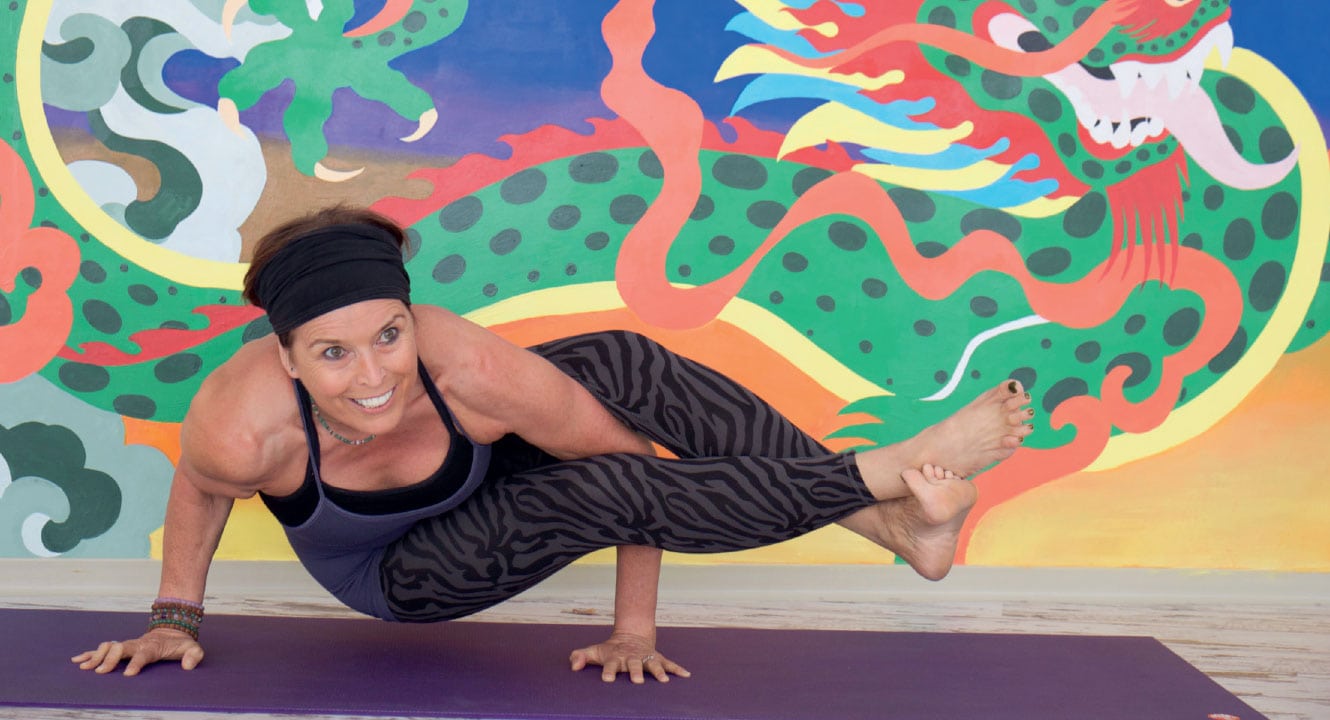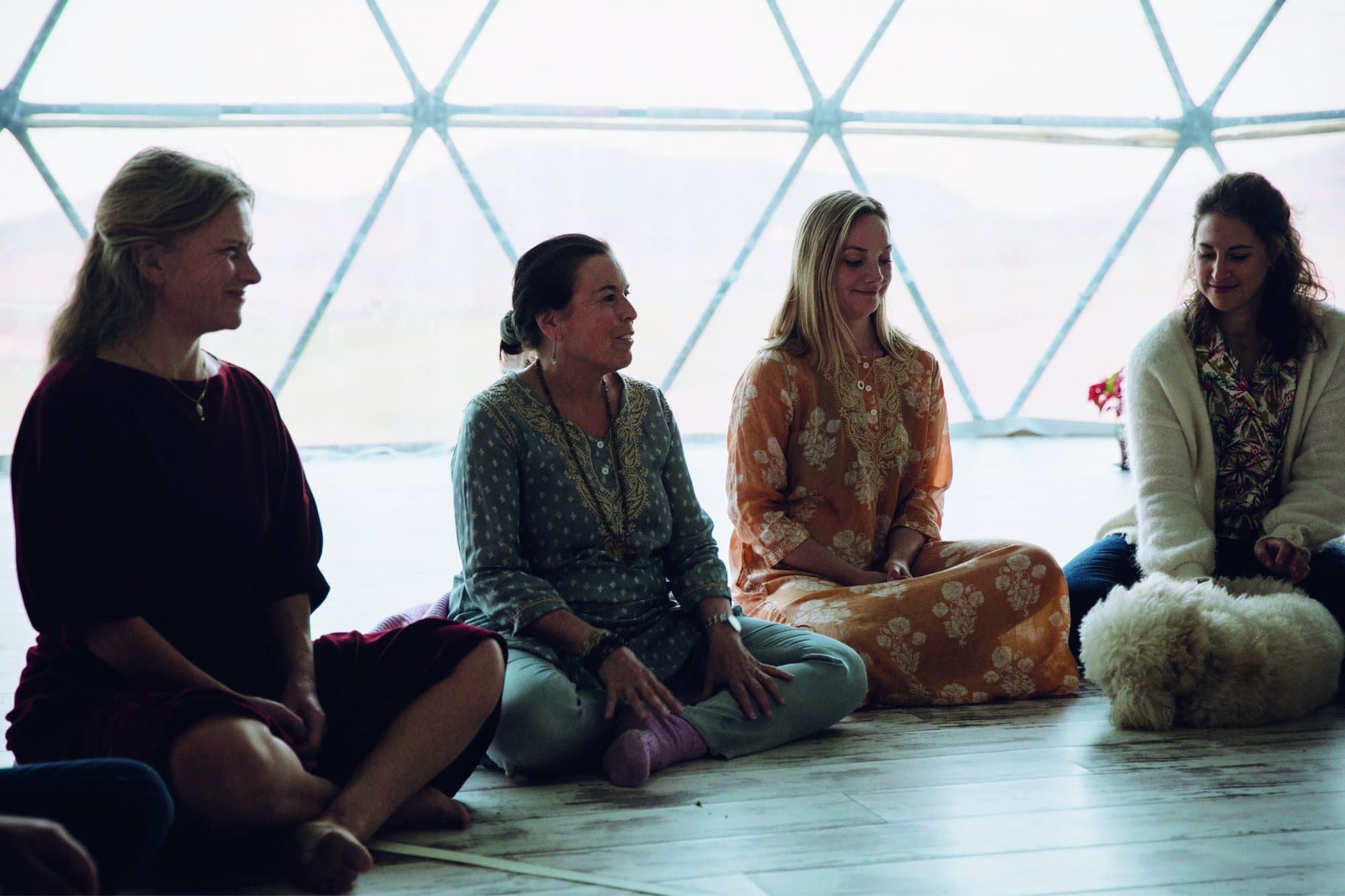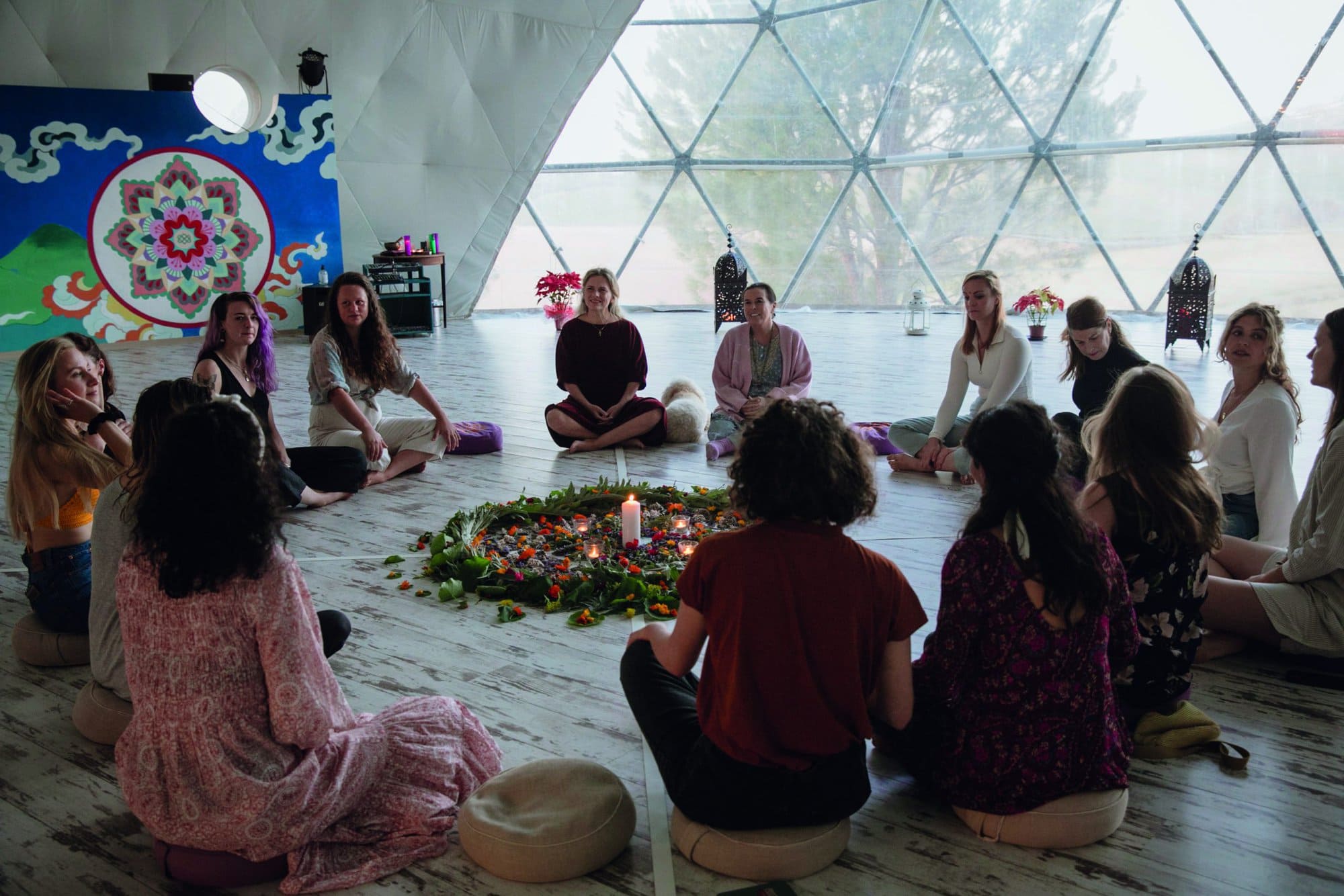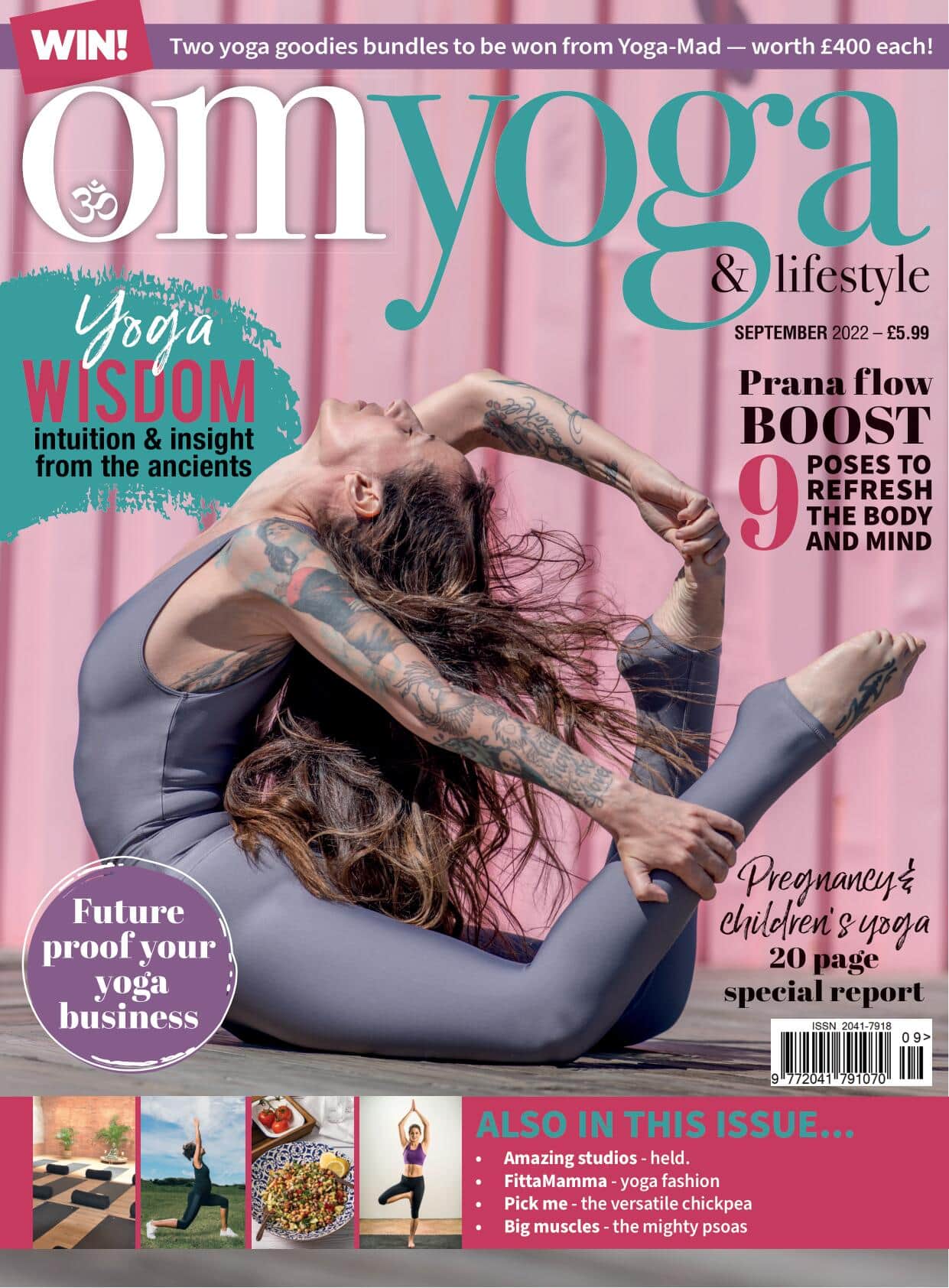
The secret to true happiness
Your true nature is happiness. Here’s how to rediscover it. By Vidya Heisel
I have been practicing and teaching yoga for 47 years. It has been my lifelong companion and source of inspiration. Coupled with a sattvic (organic and veggie) diet, the physical practice has kept me strong, flexible, and healthy. However, more importantly, my truly deep life-long passion has been for the philosophy of yoga and Advaita Vedanta. When I first discovered Eastern philosophy, I literally read hundreds of books on the subject, starting with Ram Dass’s iconic “Be Here Now” and never looking back. I spent six years in the latter part of the seventies, living, meditating, and teaching yoga in an ashram in India.
After following a long and winding road spiritually, I eventually came back to traditional Advaita Vedanta, as taught by an eighth-century Hindu sage, Adi Shankaracharya, who wrote compelling commentaries on ten of the major Upanishads, the Bhagavad Gita, and the Brahmasutras. I am deeply grateful to and inspired by two different teachers of Advaita Vedanta. James Swartz, an American teacher, in the lineage of Chinmayanada and Swami Sarvapriyananda, a Bengali Monk in the Ramakrishna tradition and the current head of the New York Vedanta Society. Both have many inspiring videos on Vedanta available on the internet.
My yoga journey led me to open the beautiful Frog Lotus Yoga Studio in Massachusetts, which had an amazing life span of 18 years, to start my own Yoga Teacher Training Academy in 2002, and to open a yoga retreat centre in Spain in 2011, Suryalila Retreat Centre, where I currently reside and teach my training programmes. I still love to teach the physical practice but my real passion is to share my knowledge and love for yogic philosophy and Vedanta, on my trainings. I know that these teachings are literally life-changing in a very positive way, and I feel it is my calling in life to communicate these teachings, to help others to be happy.
The wisdom I would like to share has been hard-won over many years of experimentation, challenge, and lengthy detours. It is the timeless wisdom you can find in the Bhagavad Gita, which has become my favourite text and the greatest beacon with which I light my way.
More important than yoga practice and a good diet, is one’s relationship to life and the ability to take the right position to the “slings and arrows of outrageous fortune”. Over time, and with study and contemplation, it’s possible to stop worrying, let go of the past and the future, and to deeply relax into oneself and realise that, fundamentally, nothing really matters that much in the whole scheme of things. Our perspective on life can change. We can start to see a much bigger picture. We can tap into our natural potential to be happy and at peace.
Here are some of my tips to achieve this. Firstly, never expect any object, event, or person to provide you with happiness. Have you ever thought, "I’ll be happy when… or I’d be happy if…."? This is a very common thought pattern that projects our potential for happiness onto something outside of ourselves, which is outside of our control. This makes us dependent. It’s good to get really clear that everything in the material world is unpredictable and finite.
Don’t let the last point worry you. True happiness is the nature of the Self. You are the Self. You may be ignorant of this fact, but it is possible to remove ignorance with knowledge. According to the yoga tradition, ignorance is the root obstacle to enlightenment. It’s not usual to get rid of ignorance in one big enlightening realisation.


It is more normal to chip away at ignorance little by little, as you become more vigilant and observant and take time to contemplate these teachings. In order to start to do this, you will need to prepare and fertilise the ground, just as a gardener does before planting seeds. This means purifying the mind. You can do this by practicing Karma yoga earnestly. Karma yoga is the yoga of action and selflessness.
When we act we often do it with an underlying question of “what will I gain from this?” We expect appreciation or results for our efforts. Karma yoga suggests that we change this attitude and act in a selfless way with no expectation of particular results or credit. We do our best, and forget the rest!
Continue to study these teachings, looking deeply into yourself. With patience and continued practice, slowly the truth will take root in you and the obstacles that were preventing you from resting in the fulfilment of knowing that you are whole, complete, unlimited awareness, and need nothing at all, will begin to fall away. Slowly and steadily, the uncaused happiness and peace, which is your nature, will be revealed.
When we practice Karma yoga, we act simply out of the joy of being able to act and let go of any expectations, knowing that we have no control of the results anyway. This frees us from suffering, as we have no preconceptions of how something should or shouldn't be, things simply are whatever way they are.
With no expectation, we have peace. Be grateful for every blessing that is continually showered upon you. Be grateful for your parents and teachers. Practice kindness and generosity. Embrace whatever comes to you with an open heart, knowing that it is exactly as it is meant to be and couldn't be any other way.
When we really come to terms with the fact that we have no control at all over what ultimately happens, then we can let go and go with the flow. Practice embracing what is seemingly good and seemingly bad with no resistance and no judgment. This will reduce suffering a lot, thereby increasing our level of happiness. Remember we cannot change what happens, but we can change our response to it.
Find ways to give generously to others, through little acts of kindness, or by freely sharing time, energy or ideas. Volunteer to help in some way. Give without thought of reward! The more we can contribute, the more meaningful our life will be, and the happier we will feel.
Make effort to cultivate more Sattva in your life. Sattva is a type of energy called a Guna in the yogic tradition. It is energy that is clear, pure, and aware. We can cultivate Sattvic energy by eating light, healthy organic whole foods, practicing yoga, pranayama and meditation, walking in nature, and living a wholesome life. The more Sattva we have, the happier and more peaceful we will feel.
Above all remember that according to Patanjali, practice must be steady and consistent, over a long period of time. Have patience, don't give up, and in the fullness of time, you will reap the rewards.
Vidya Heisel has been running YTT programmes for 22 years as the founder and lead trainer of Frog Lotus Yoga International (froglotusyogainternational.com). She is also the founder and owner of Suryalila Retreat Centre (suryalila.com)




